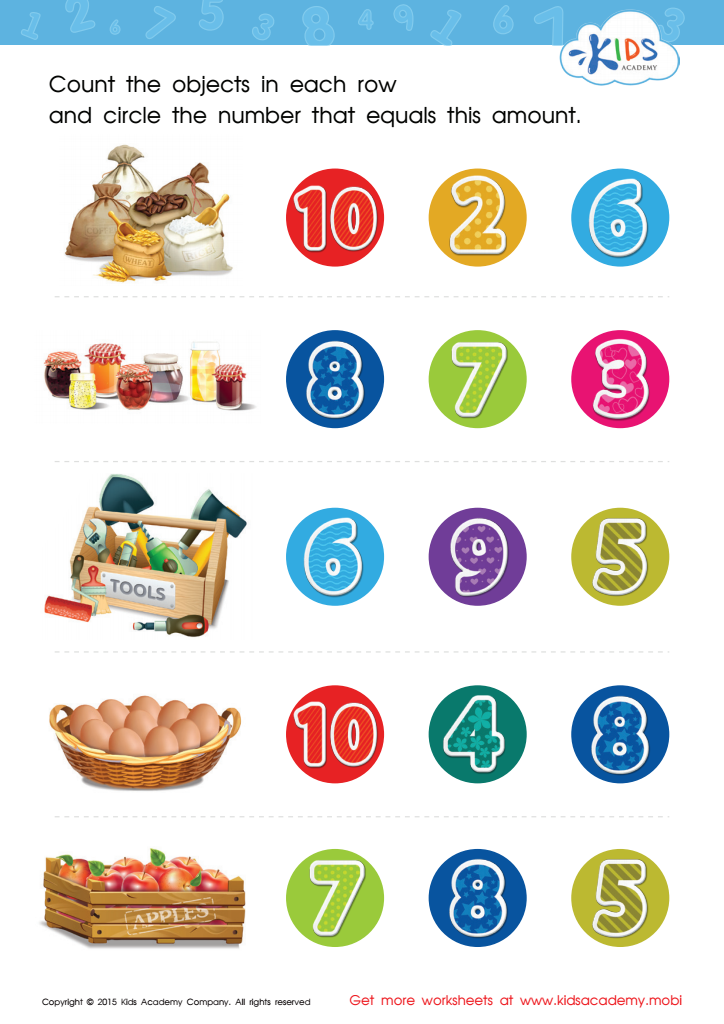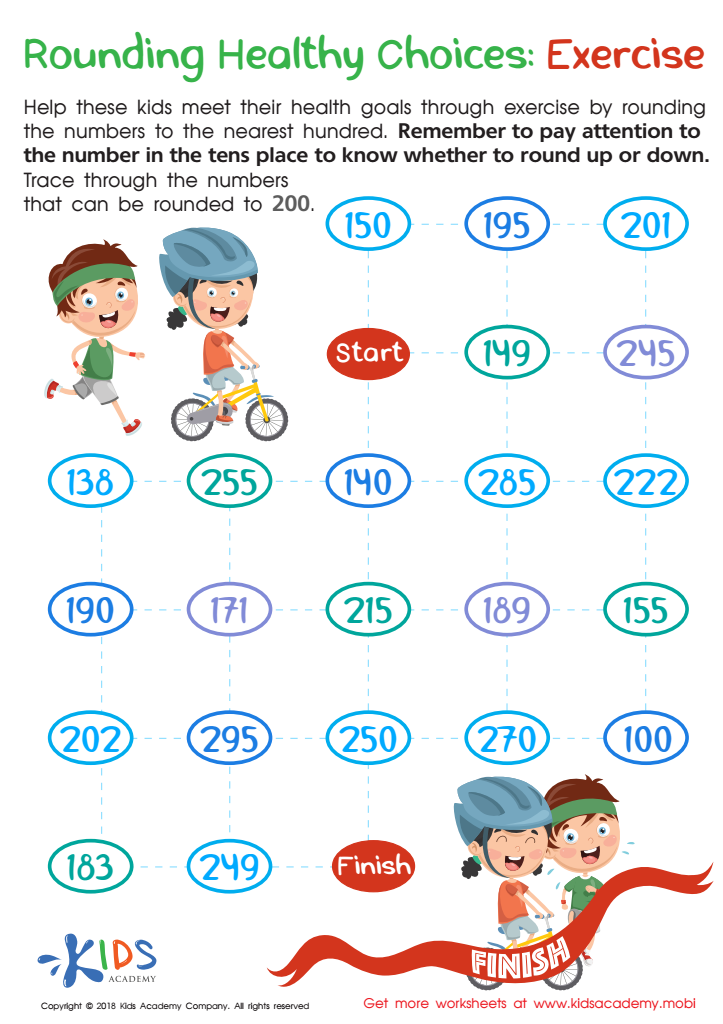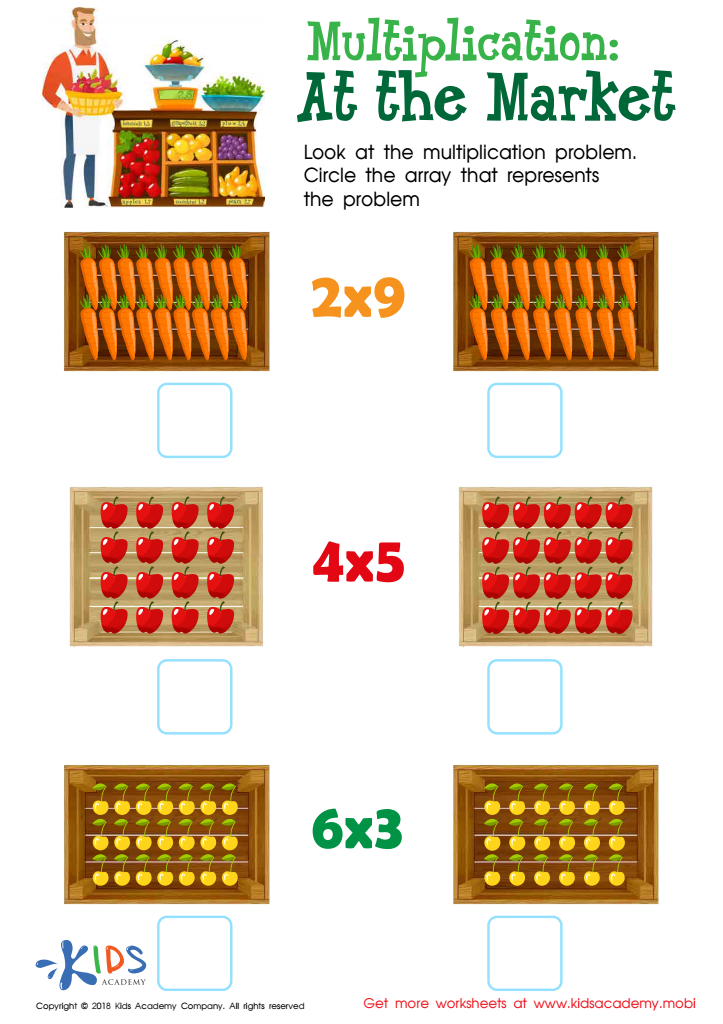Basic Arithmetic Normal Numbers Worksheets for Ages 5-8
4 filtered results
-
From - To
Discover our engaging "Basic Arithmetic Normal Numbers Worksheets for Ages 5-8," designed to enhance early math skills in young learners. Perfectly crafted for kids aged 5 to 8, these worksheets provide hands-on practice in basic arithmetic concepts such as addition, subtraction, counting, and number recognition. With colorful, kid-friendly designs and interactive exercises, children will enjoy mastering numbers while developing critical thinking and problem-solving abilities. Ideal for both classroom and homeschooling environments, these printables offer a fun and effective way to build a solid math foundation, ensuring lifelong numeracy competence. Start your child's math journey today!


Count and Match 6 – 10 Math Worksheet


Solve the Problem: Trick–or–treating Worksheet


Rounding Healthy Choices Exercise Worksheet


At the Market Worksheet
Caring about basic arithmetic and number understanding for children aged 5-8 is crucial for multiple reasons. This formative stage marks the leap from concrete to more abstract thinking, and arithmetic acts as a foundational skill. Proficiency in simple operations like addition and subtraction, or number pattern recognition, builds confidence and prepares children for more advanced mathematical concepts such as multiplication, division, and fractions.
Early mastery fosters a positive attitude towards math, averting 'math anxiety' often observed in later years. When arithmetic skills are nurtured, children develop critical thinking, problem-solving abilities, and logical reasoning, transferable to various life skills and other academic subjects.
Parents’ engagement reinforces learning outside the classroom, ensuring children get widespread opportunities to practice. It encompasses simple daily activities like cooking or shopping, making math feel relevant and less intimidating. Likewise, teachers equipped with compassionate understanding can create enriching, stress-free environments promoting mathematical challenges tailored to each child’s unique pace.
Overall, disregard for mastering basic arithmetic in early education risks a fragile mathematical foundation, potentially leading to struggles in subsequent schooling. By prioritizing these early skills, parents and educators can cultivate a robust bedrock for lifetime learning, ensuring children understand and appreciate the value of mathematics from an early age.

 Assign to My Students
Assign to My Students
















